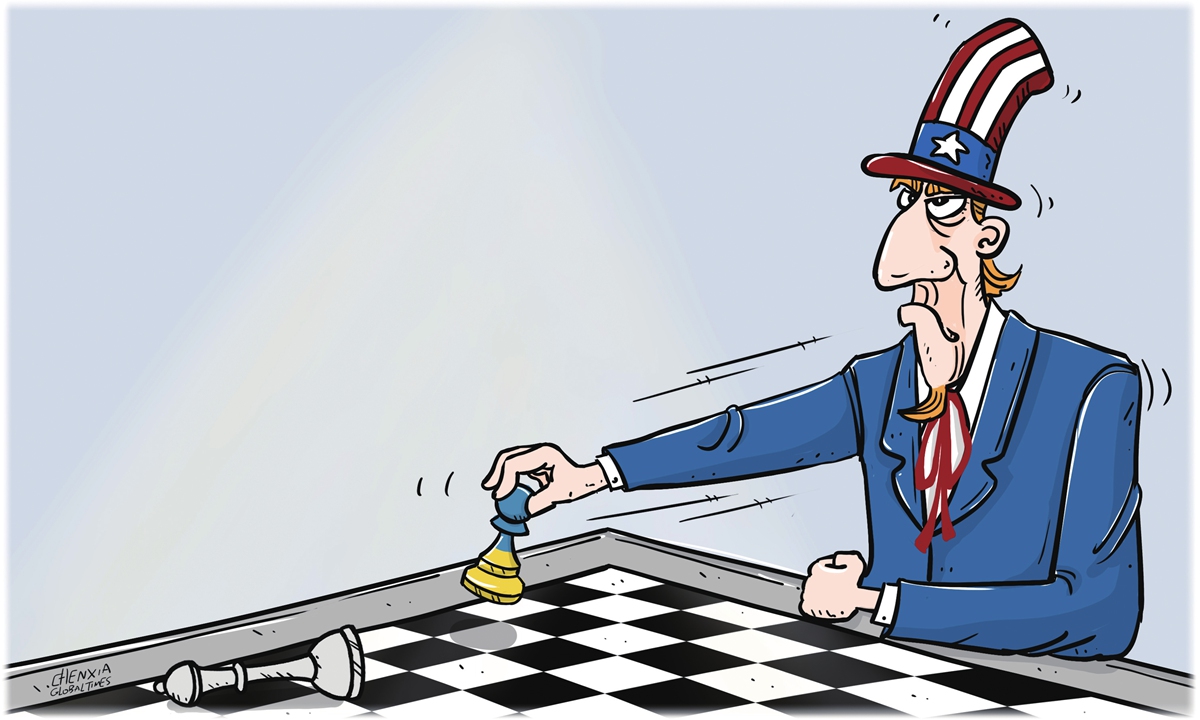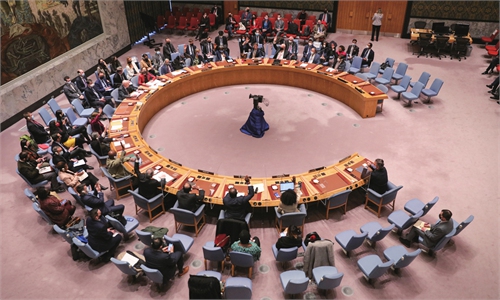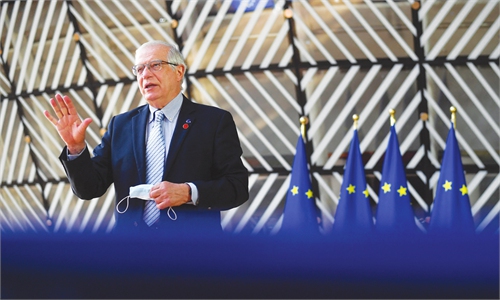
Illustraion: Chen Xia/GT
Click here to stay tuned with our live updates on Ukraine tensions.Events are evolving quickly in the Ukraine-NATO-backed war with Russia. Russian troops advance in the main Ukraine cities, while more NATO countries declare they will send weapons and money to Ukraine forces and mercenaries, who are coming from many world regions in support of its nationalist groups. The media war continues as well, with many fake images spreading around the world.
The EU's choice to issue severe sanctions, along with the US, is considered by Russia as an act of war by NATO's countries, as authorities said.
How is the EU viewed by the US? Following some of the most influential US analysts and strategists, the following emerges: The important thing is to keep it united, but increasingly subordinated to US strategic interests. The EU has only to lose in this situation: See for example the commercial and energy repercussions in the frictions or clashes with Russia, China and Iran. Blocking the Nord Stream 2 is suicide for Europe. Why? Because we don't have so many alternatives to Russian gas in the short- and medium-term. Euro currency will be also a victim of this new historical break in Europe if real and effective negotiations will not succeed and the war prolonged. Equally, some banks, with higher exposure to Russia (e.g. Unicredit), and many SMEs will suffer and close down.
EU subordination comes from, in the US view, a loosening of relations with the Eurasian powers. Meanwhile, there is an excuse to continue to tighten economic sanctions against Russia, with geopolitical-economic maneuvers put in place by the US and the EU. But as we have often found analyzing Chinese events in the international competitive context, these sanctions damage Europe, which is already limping, divided, and continuing to impoverish itself. To recover, we must not slavishly follow the dictates of Washington (especially in light of an obsolete and meaningless Atlanticism), but address the Eurasian spaces with balance and pragmatism, cooperating more with China, Russia and other Asian and African countries.
The fears of Western elites, especially the US, can be traced back to the growing fear of losing influence in the redefinition of the new world governance (not from today) and therefore of seeing a de-Westernized world. This prompted various scholars and institutions to think about a new Cold War scenario as early as 15-20 years ago.
The world order has already radically changed in the structure of its economic geography, bringing with it an inevitable consequence on the geopolitical level. A process of radical transformation has reduced Western influence and US leadership. In recent decades, US unilateralism and its continuous hegemonic aims toward emerging economies have gradually eroded, making its strategies of domination lose international credibility and legitimacy. The recent votes in the UN on the Ukrainian crisis show that at least half of the world population prefers to keep equidistance and reject regional block logic.
The world system is already multipolar, or rather re-balanced again with respect to the US dominance of the 1990s.
In short, it would seem increasingly evident that the worst nightmares of US strategists are coming true, namely the welding of anti-establishment or counter-hegemonic powers and the contraction of US influence in Eurasia.
From a European perspective, I hope what will emerge more clearly is a will to recognize the multi-causes at the roots of this crisis and an acceptance to work for balancing different legitimate interests and security reasons. Doing so needs the help and support from the main regional and international powers and institutions, avoiding blowing on the fire.
The author is associate professor of International Studies at CFAU, Beijing, teaching also at the International Institute Lorenzo de' Medici, Florence. He is also member of CCERRI think tank, Zhengzhou, and EURISPES, Laboratorio BRICS, Rome. Follow him on twitter @fabiomassimos. opinion@globaltimes.com.cn


